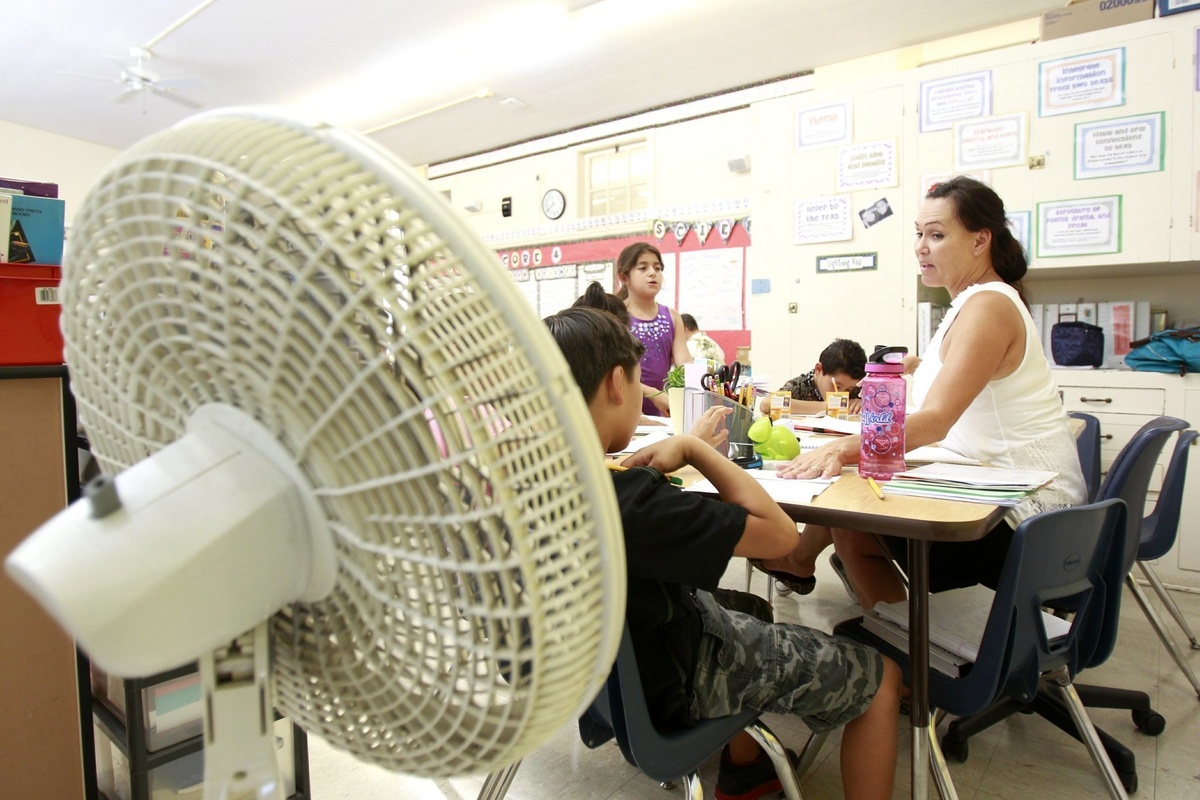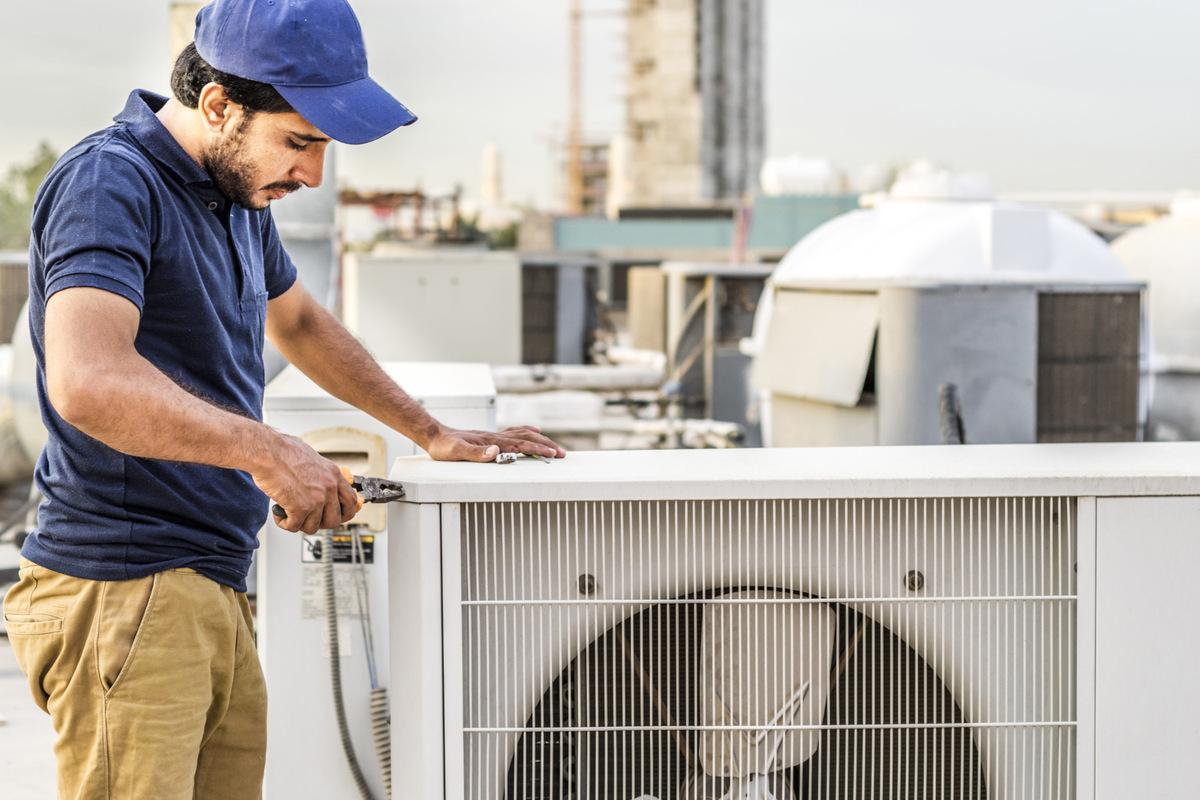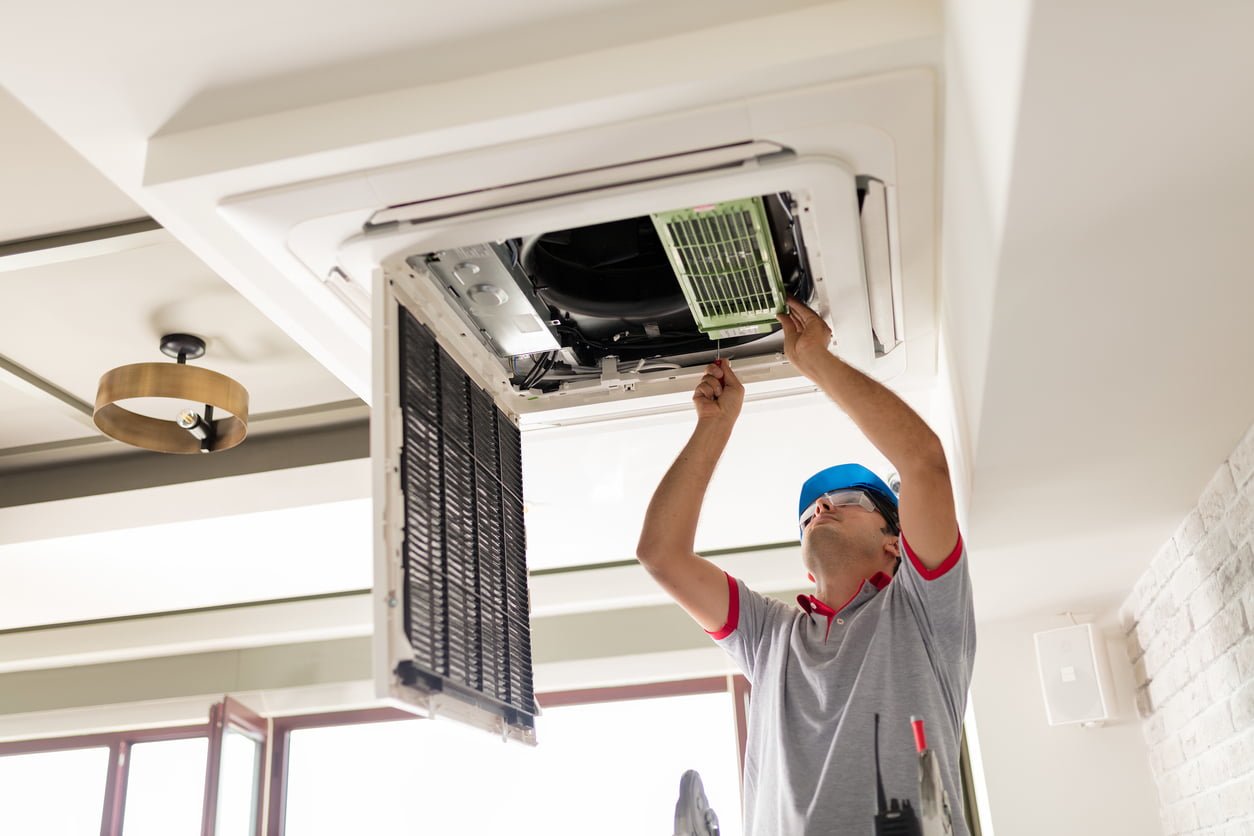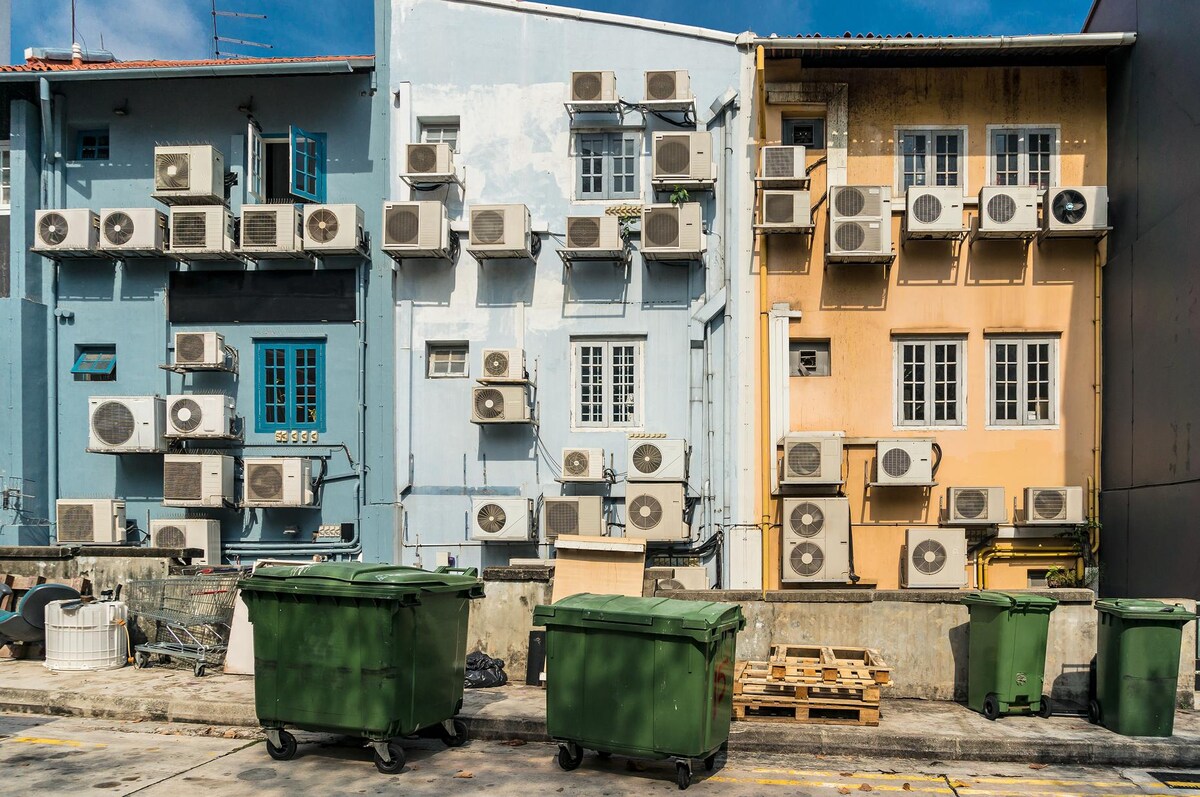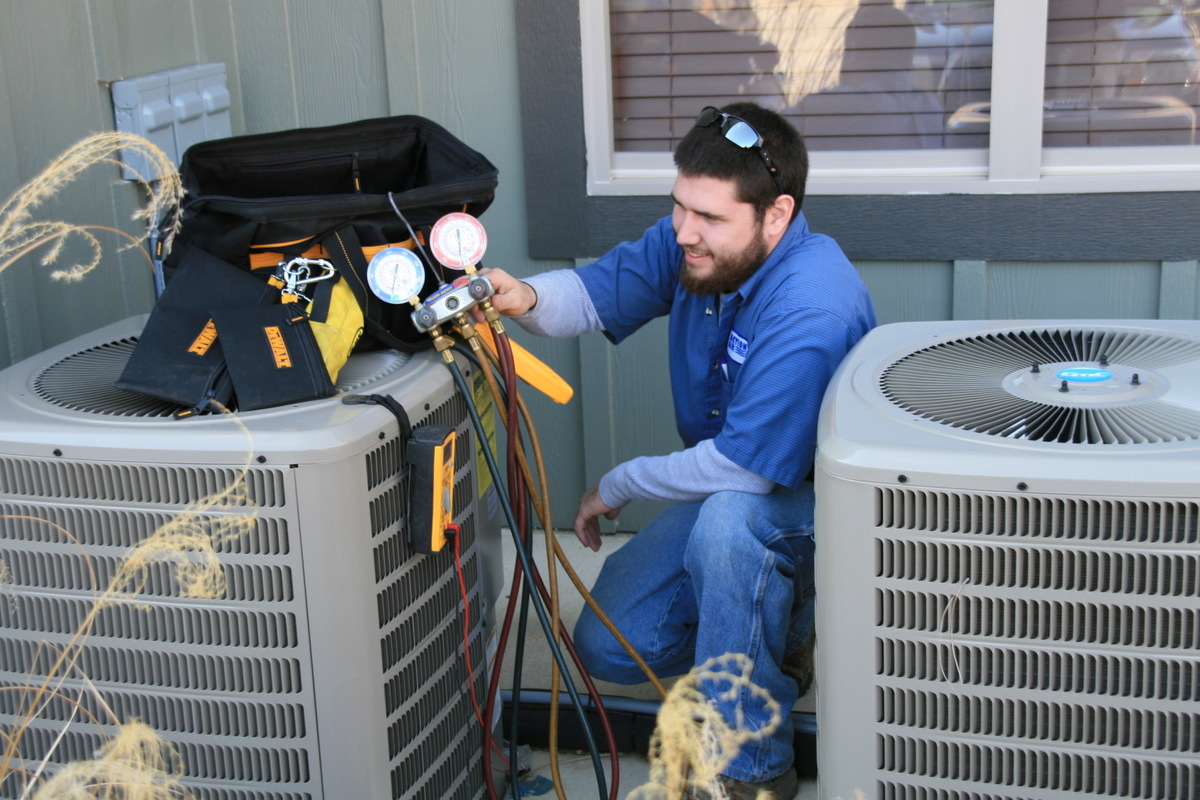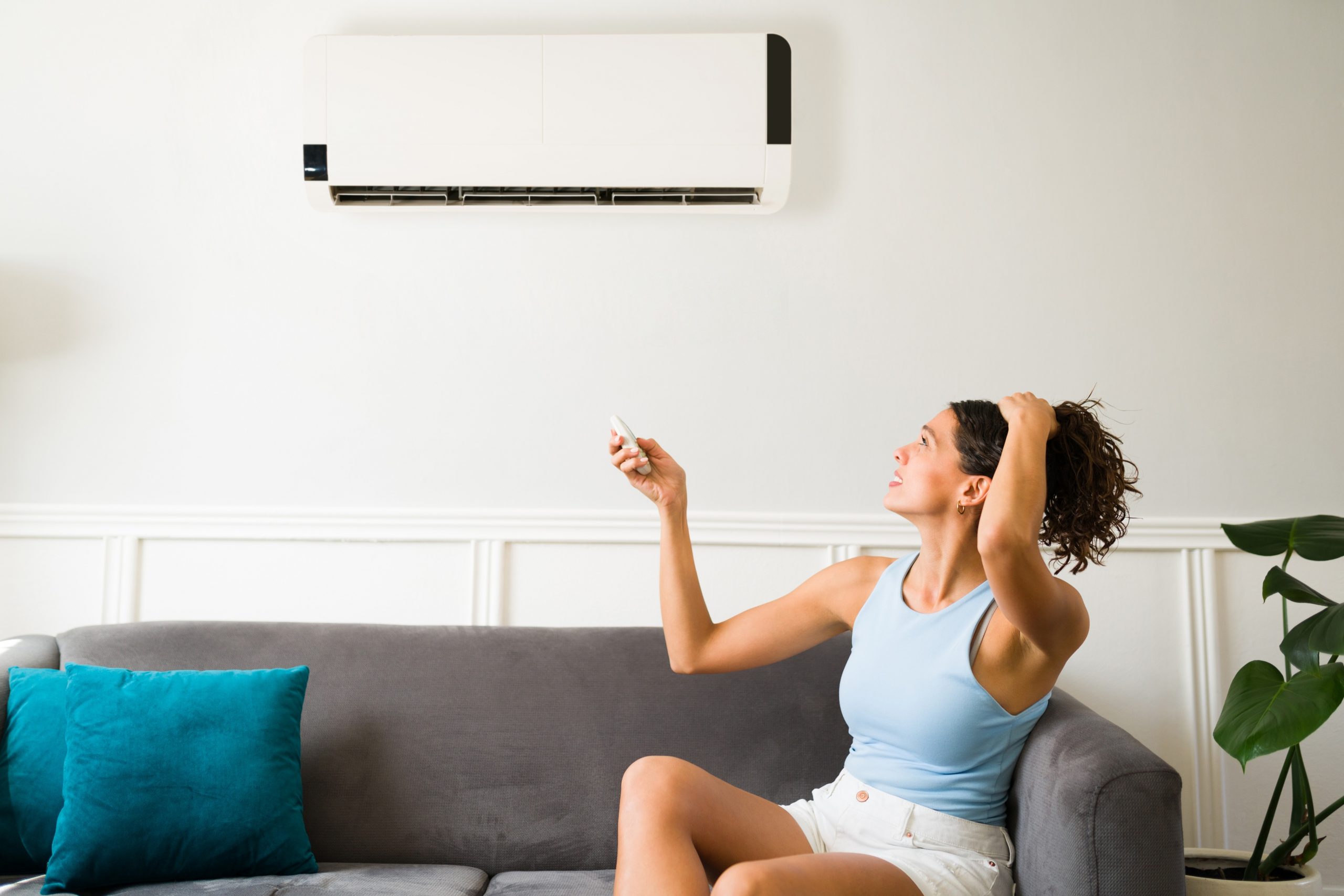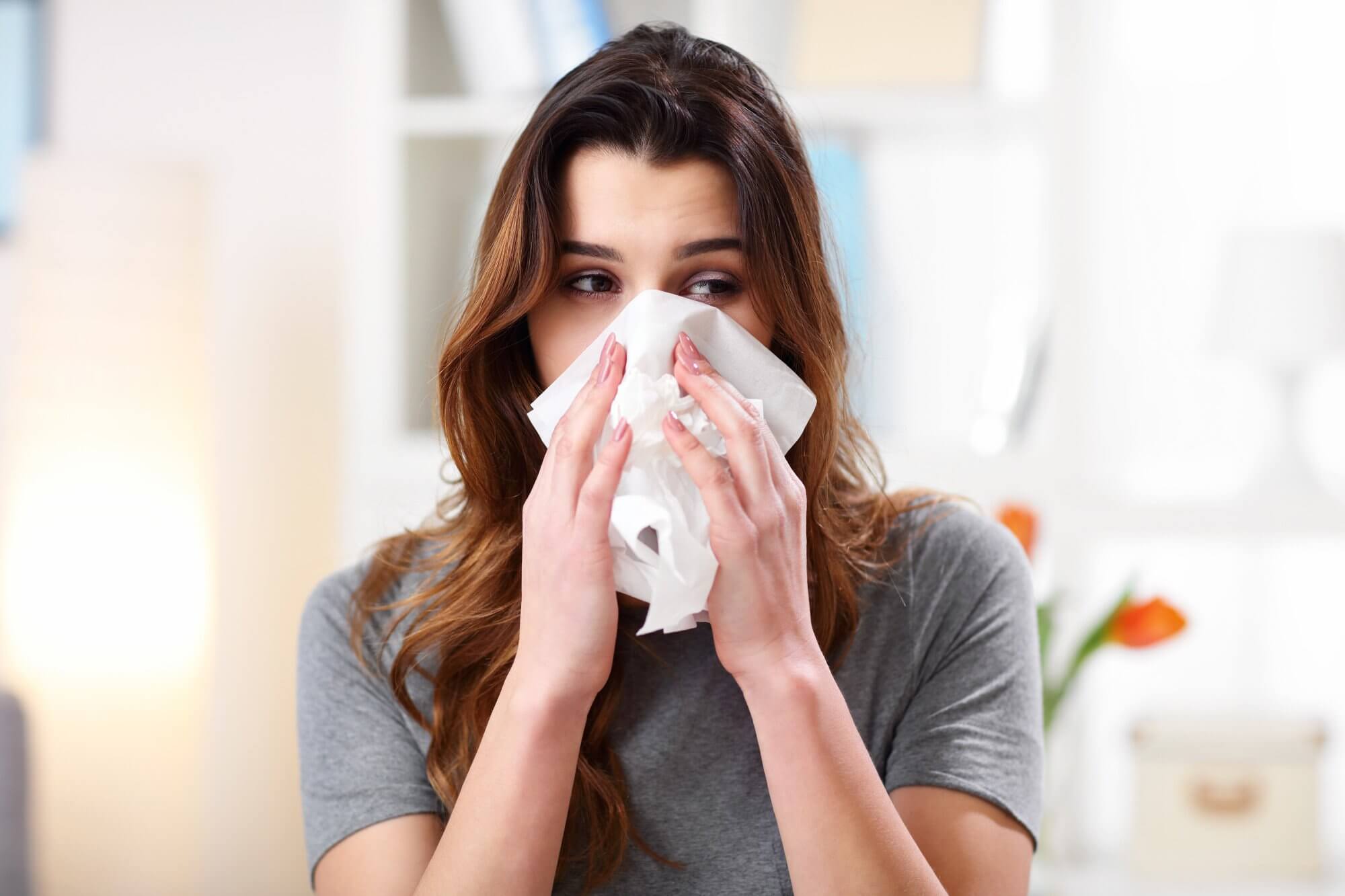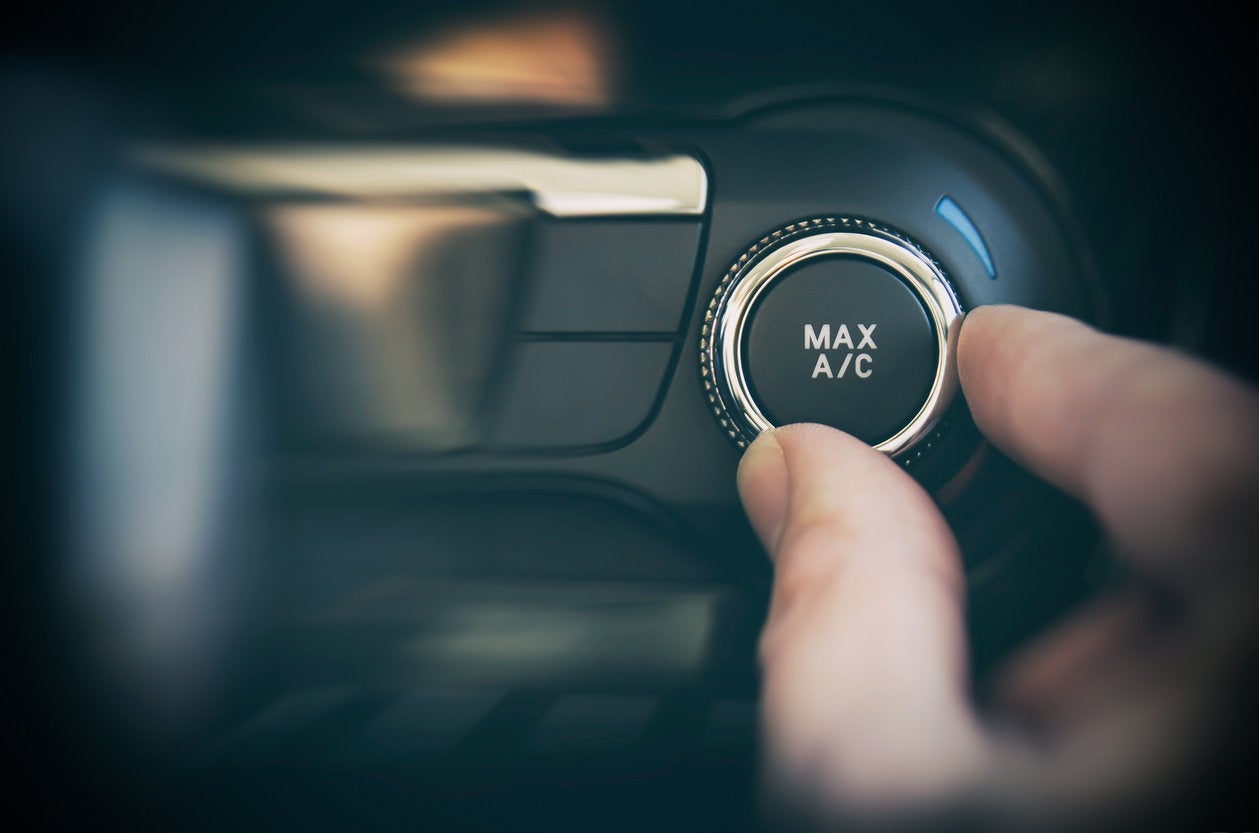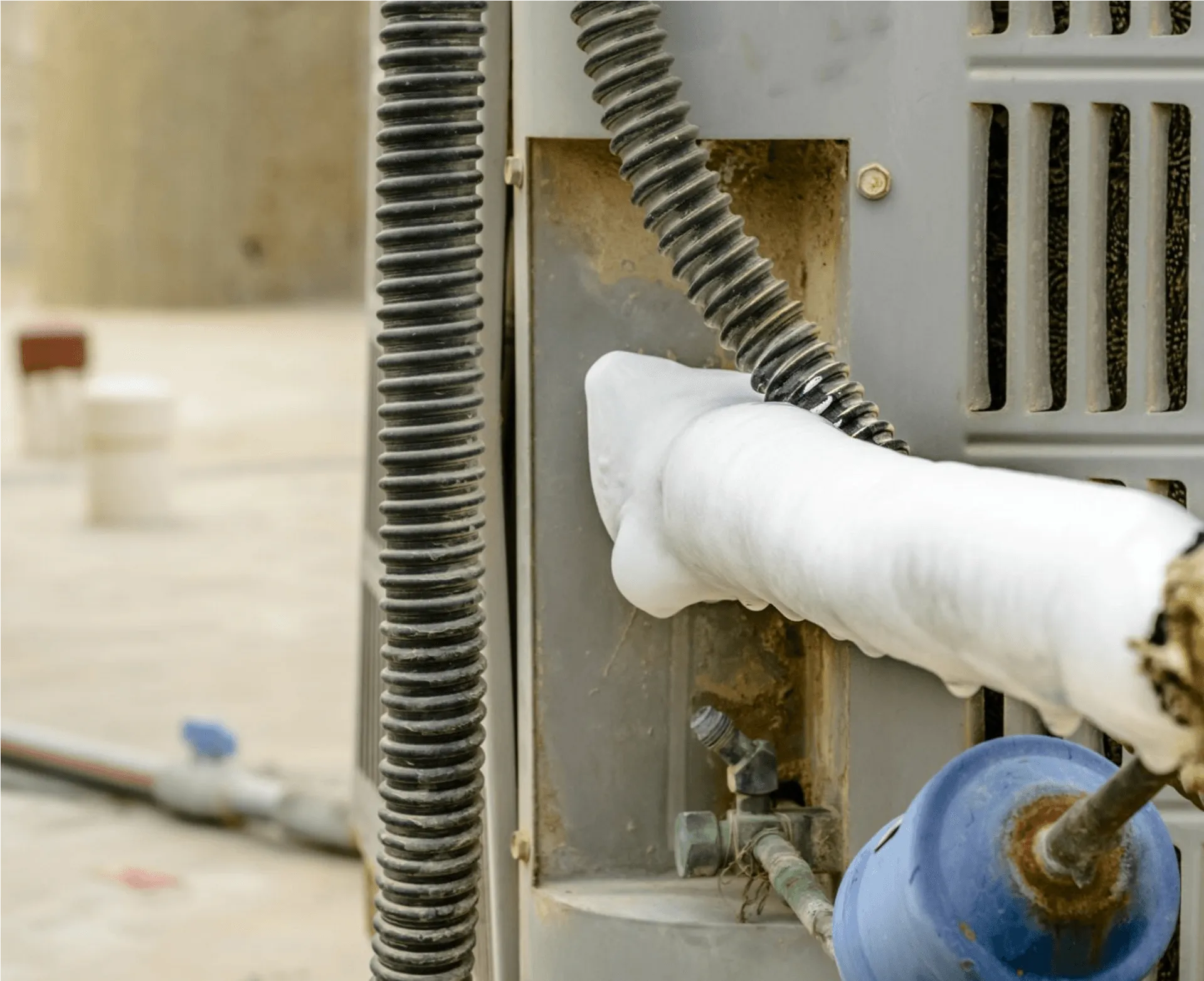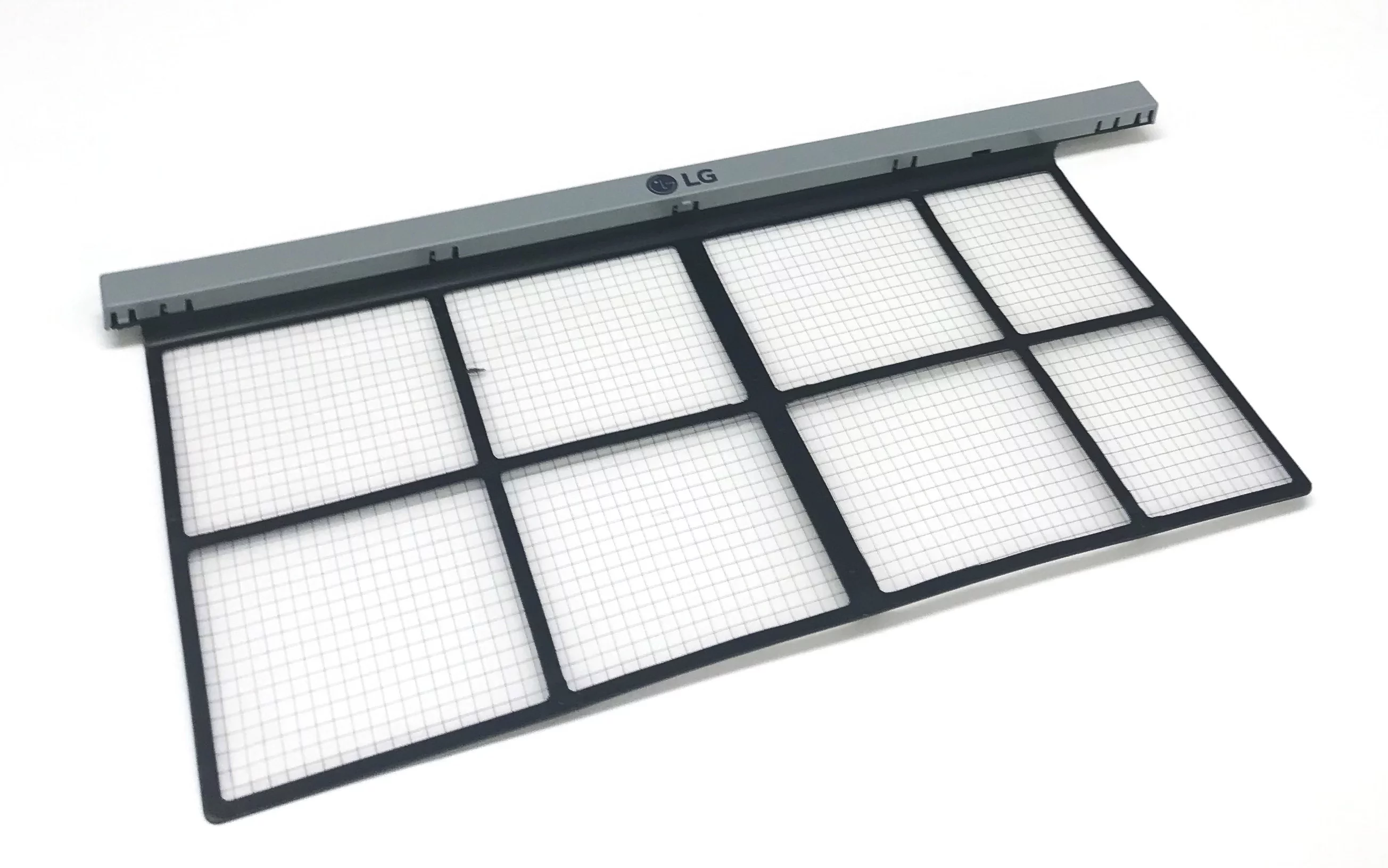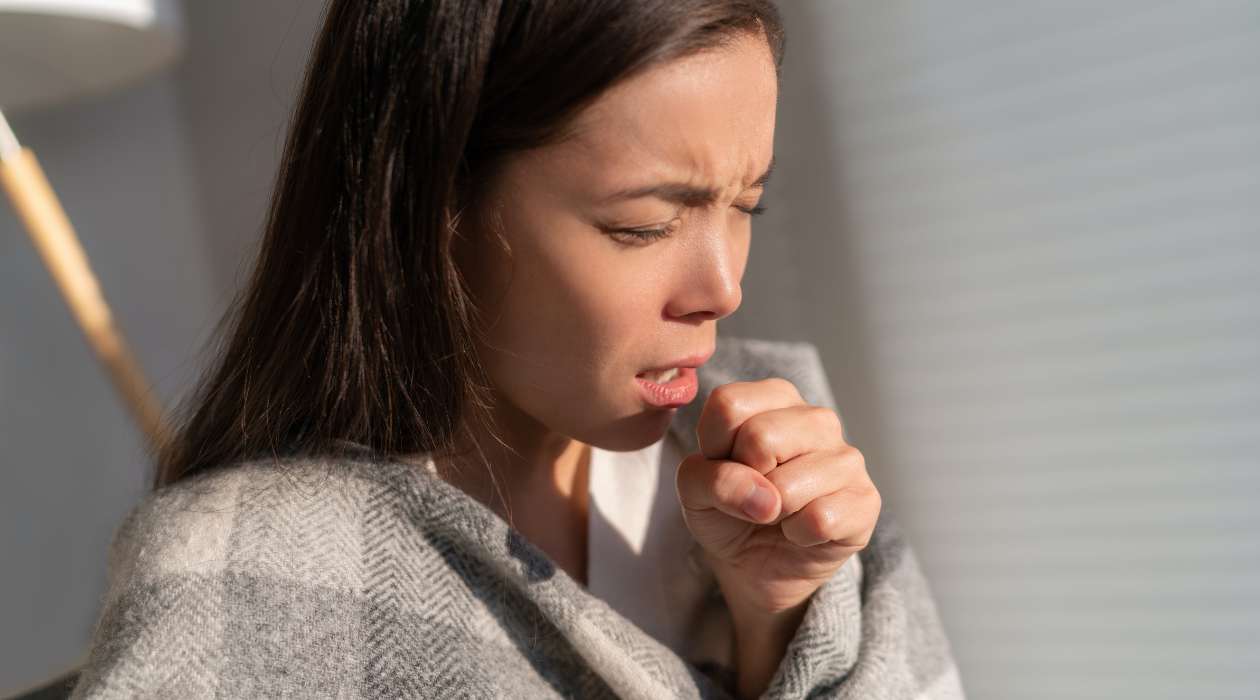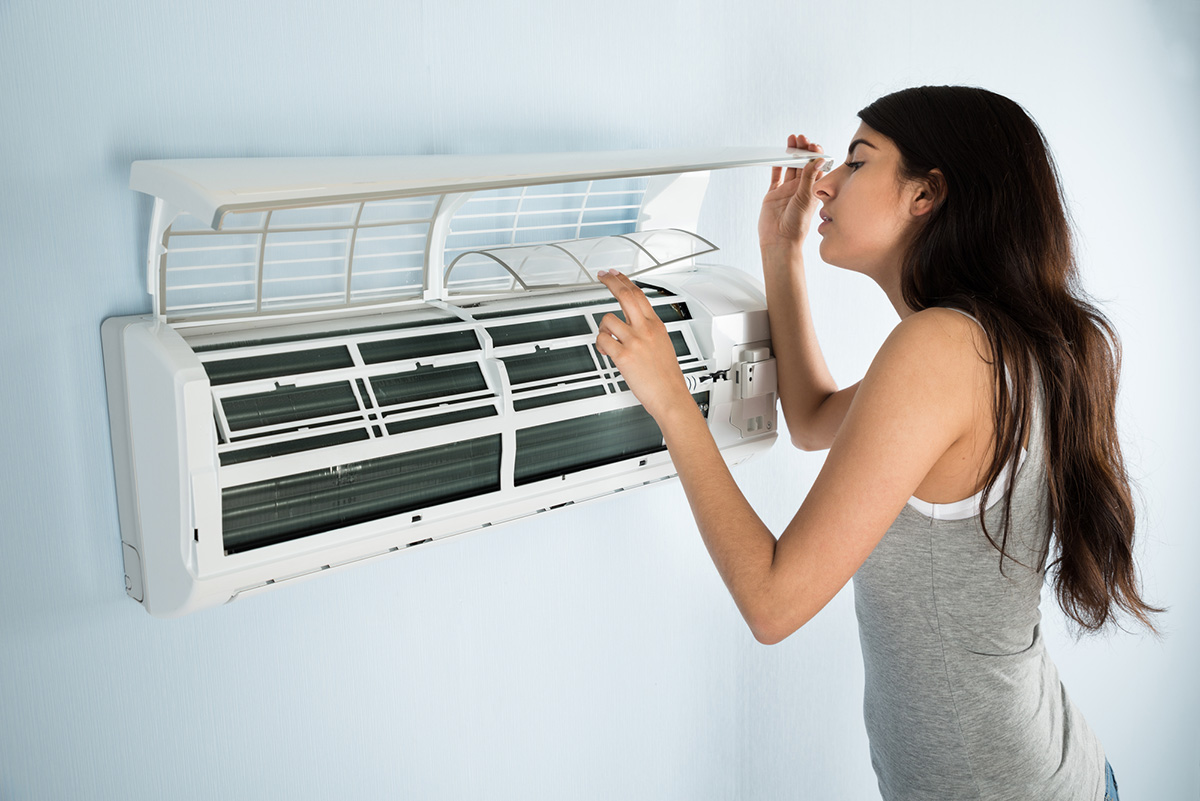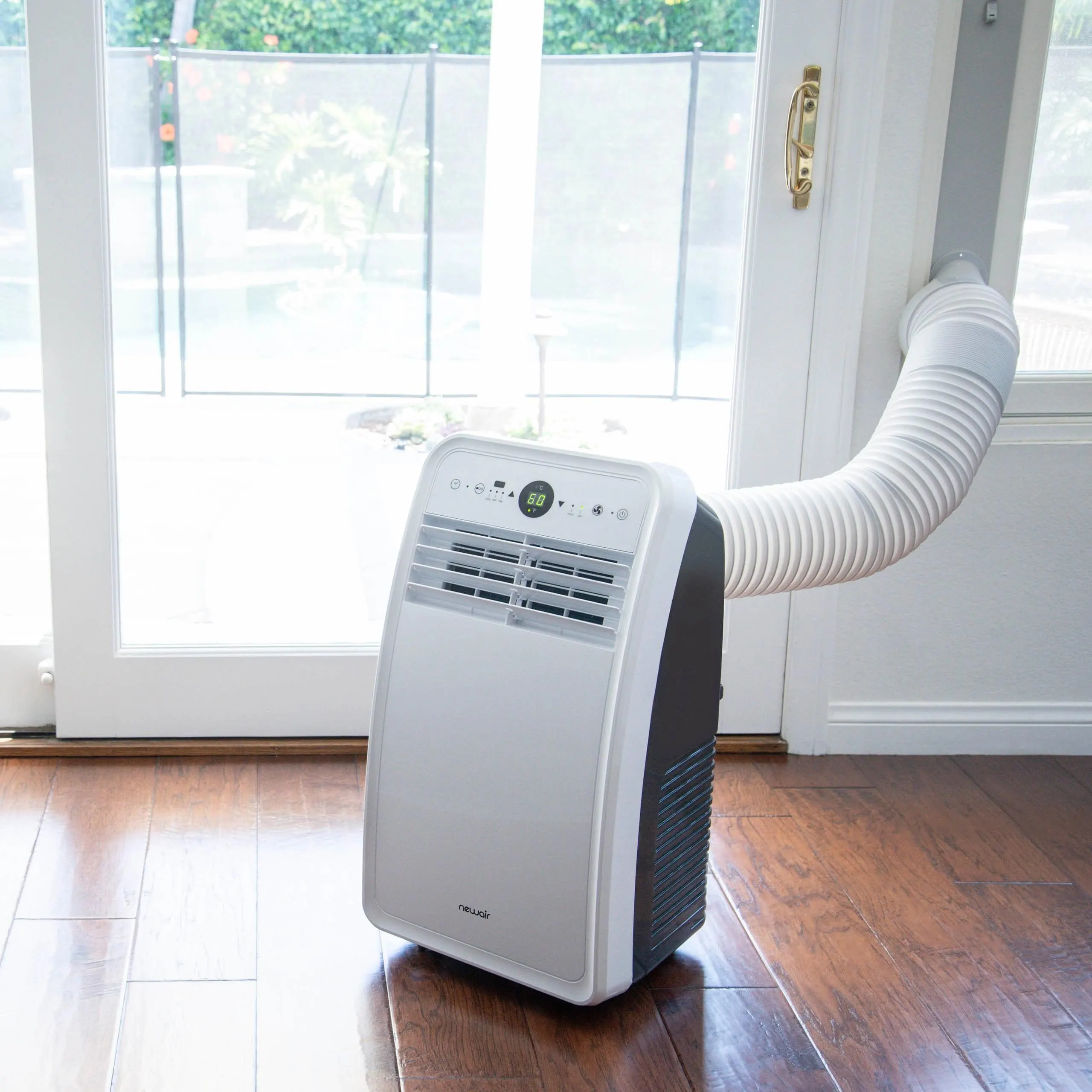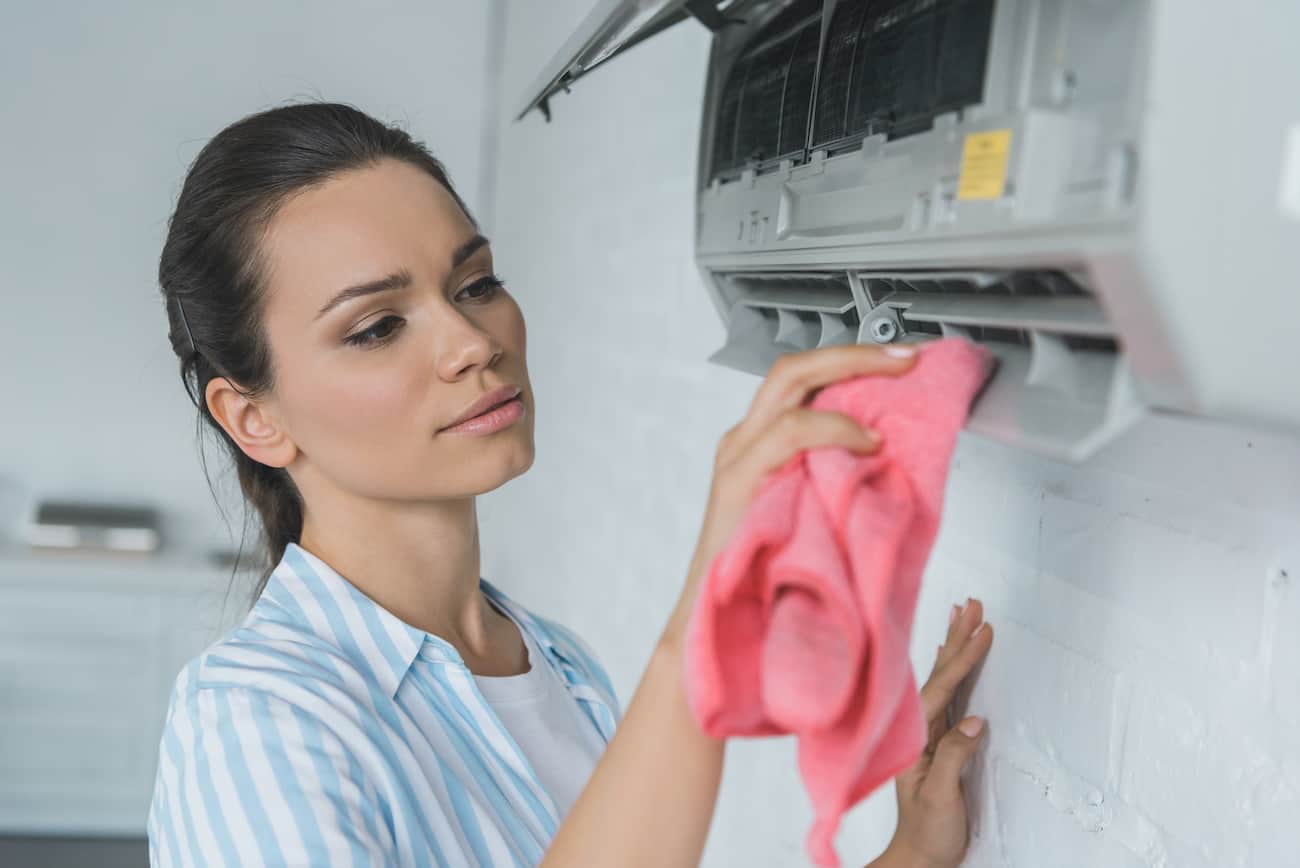Home>Home Maintenance>Why Do I Cough In Air Conditioning


Home Maintenance
Why Do I Cough In Air Conditioning
Modified: March 6, 2024
Discover the reasons behind coughing in air conditioning and learn how to prevent it. Get expert tips on home maintenance to improve indoor air quality.
(Many of the links in this article redirect to a specific reviewed product. Your purchase of these products through affiliate links helps to generate commission for Storables.com, at no extra cost. Learn more)
Introduction
Welcome to the world of air conditioning, where cool and refreshing air is at your fingertips. Air conditioning systems have become a common feature in homes and offices, providing relief from sweltering summers and creating a comfortable indoor environment. However, for some people, the bliss of cool air comes with an unintended side effect – coughing.
In this article, we will delve into the reasons why coughing can occur in air conditioning environments and explore strategies to prevent and manage it. We will also uncover the relationship between air conditioning and coughing, shedding light on how these systems can impact our respiratory health.
Understanding the nuances of air conditioning systems and their effects on our well-being can help us make informed decisions about their installation and usage. So, let’s embark on this journey to uncover why coughing may occur in air conditioning environments.
Key Takeaways:
- Keep air conditioning systems clean and well-maintained to reduce coughing. Regularly clean or replace air filters and ensure proper ventilation to create a healthier indoor environment.
- Maintain optimal humidity levels (40-60%) and use high-quality air filters to minimize coughing in air conditioning environments. Seek professional help if coughing persists.
Read more: Why Do I Get Sick From Air Conditioning
Understanding Air Conditioning Systems
Before we dive into the relationship between air conditioning systems and coughing, let’s first gain a basic understanding of how these systems work. Air conditioning systems are designed to cool and dehumidify the air in an indoor space, creating a comfortable environment even during hot and humid weather.
An air conditioning system consists of several key components. The compressor, located outside the building, is responsible for compressing the refrigerant, which is then circulated through a series of coils and pipes. As the refrigerant expands and evaporates, it absorbs heat from the indoor air, cooling it down. The cooled and dehumidified air is then circulated back into the room by a fan.
Modern air conditioning systems also feature filters that trap dust, pollen, and other airborne particles, improving the indoor air quality. Additionally, some systems offer advanced features like air purification and humidity control, providing further benefits for respiratory health.
It’s important to note that air conditioning systems can operate in different modes, such as cooling, heating, or ventilation. While our focus in this article is on the cooling mode, it’s worth mentioning that coughing can also occur in other modes due to various factors, such as dry air or pollutants present in the indoor environment.
Now that we have a basic understanding of air conditioning systems, let’s explore the role they play in indoor air quality and how they can potentially lead to coughing.
The Role of Air Conditioning in Indoor Air Quality
One of the main benefits of air conditioning systems is their ability to improve indoor air quality. By filtering out dust, allergens, and pollutants, these systems help create a healthier and more comfortable environment.
When we think of air pollution, we often picture smog-filled city streets or industrial areas. However, indoor air can also be contaminated with a variety of pollutants, including dust mites, pollen, pet dander, mold spores, and volatile organic compounds (VOCs).
These pollutants can have a significant impact on our respiratory health, triggering allergies, asthma, and other respiratory conditions. This is where air conditioning systems come to the rescue. By effectively filtering and removing these airborne particles, air conditioners help reduce exposure to allergens and irritants, improving the overall indoor air quality and minimizing the risk of respiratory issues.
However, despite their filtration capabilities, air conditioning systems can sometimes contribute to coughing and respiratory discomfort. Let’s explore the relationship between air conditioning and coughing in more detail.
The Relationship Between Air Conditioning and Coughing
While air conditioning systems are designed to enhance indoor comfort, they can occasionally trigger coughing episodes for some individuals. The reasons behind this relationship can vary and are often multifaceted.
One of the primary reasons for coughing in air conditioning environments is the drying effect of cooled air. When the air conditioner cools the air, it also removes moisture, leading to lower humidity levels. Low humidity can dry out the airways and throat, causing irritation and a persistent cough in some people. This effect is more pronounced in arid climates or during prolonged exposure to air conditioning.
In addition to the drying effect, the circulation of air by the fan in an air conditioning system can stir up dust and allergens settled in the room. This can trigger allergic reactions and coughing in individuals who are sensitive to these particles. It is particularly important to keep the air filters in air conditioning systems clean and regularly replaced to minimize the presence of these irritants.
In some cases, the refrigerant used in air conditioning systems can emit a distinct odor when the system is running. This odor, although not harmful, can be irritating to some individuals, leading to coughing or throat irritation.
Another factor to consider is the presence of mold or bacteria in poorly maintained air conditioning systems. Moisture buildup within the system can create an ideal breeding ground for these microorganisms. When the cool air is distributed, it can carry these contaminants into the room, potentially causing respiratory issues, including coughing.
It’s important to note that the frequency and severity of coughing episodes in air conditioning environments can vary from person to person. Some individuals may experience minimal or no issues, while others may be more sensitive and prone to coughing fits.
Now that we have examined the relationship between air conditioning and coughing, let’s delve into common causes of coughing in air conditioning environments.
To reduce coughing in air conditioning, try using a humidifier to add moisture to the air, and regularly clean or replace air filters to remove allergens and irritants.
Common Causes of Coughing in Air Conditioning Environments
Coughing in air conditioning environments can be attributed to several factors. Understanding these common causes can help identify and address the underlying issues to alleviate coughing and promote a healthier indoor environment.
- Low humidity: The drying effect of air conditioning can lower the humidity levels in the room, leading to dryness in the airways and throat. This dryness can trigger coughing, especially in individuals with sensitive respiratory systems. Using a humidifier or placing bowls of water in the room can help increase humidity levels and reduce coughing related to dry air.
- Dust and allergens: Air conditioning systems can circulate dust, pollen, and other allergens if the air filters are dirty or not properly maintained. Regularly cleaning or replacing the air filters can minimize the presence of these irritants, reducing the risk of coughing and allergic reactions.
- Mold and bacteria: Poorly maintained air conditioning systems can develop mold and bacteria, which can be dispersed into the air when the system is running. Breathing in these contaminants can cause respiratory issues, including coughing. Regular maintenance and cleaning of the air conditioning system, including the coils and condensate drain pan, can help prevent the growth of mold and bacteria.
- Chemical irritants: Some individuals may be sensitive to the chemicals used in air conditioning systems, such as cleaning agents or refrigerants. The chemicals can release odors or irritants that can trigger coughing or throat irritation. Ensuring proper ventilation and using air conditioning systems with low VOC emissions can help reduce the risk of chemical-related coughing.
- Improper air circulation: Inadequate air circulation within the room or restricted air vents can lead to stagnant air pockets where dust, allergens, and other irritants can accumulate. Enhancing air circulation through the use of fans or adjusting the air conditioning system’s settings can help disperse these particles and reduce coughing.
It is important to note that these causes can often interact with one another. For example, low humidity can exacerbate the effects of dust and allergens in the air, leading to more severe coughing episodes. By addressing these common causes, it is possible to create a more cough-free and comfortable air conditioning environment.
Allergens and Irritants in Air Conditioning Systems
Air conditioning systems play an important role in improving indoor air quality by filtering out allergens and other irritants. However, if not properly maintained, these systems can become a source of allergens and irritants, contributing to coughing and respiratory discomfort.
One common allergen found in air conditioning systems is dust mites. These microscopic creatures thrive in the warm and humid environments created by air conditioning systems. As the air circulates through the system, it can carry dust mites and their waste products into the room, triggering allergies and coughing in sensitive individuals.
Pollen is another allergen that can find its way into air conditioning systems. When the system pulls in outdoor air for ventilation or cooling, it can also draw in pollen particles. These particles can then be dispersed throughout the room when the air is circulated, causing allergic reactions and coughing in individuals with pollen allergies.
Mold and bacteria are also common irritants found in poorly maintained air conditioning systems. When moisture builds up within the system, it creates an ideal breeding ground for mold and bacteria to grow. As the air conditioner blows air into the room, it can carry these contaminants, leading to respiratory issues and coughing in susceptible individuals.
In addition to these allergens and irritants, volatile organic compounds (VOCs) can also be present in air conditioning systems. VOCs are emitted by certain building materials, cleaning products, and furnishings. When these compounds are released into the air, they can cause coughing, throat irritation, and other respiratory problems. Proper ventilation and the use of low VOC-emitting materials can help mitigate the impact of VOCs on respiratory health.
To minimize the presence of allergens and irritants in air conditioning systems, regular maintenance is crucial. This includes cleaning or replacing air filters, ensuring proper drainage to prevent moisture buildup, and conducting routine inspections to identify any mold or bacterial growth. Additionally, using high-quality air filters with a high MERV rating can help trap smaller particles and allergens, further improving the indoor air quality.
By addressing and reducing the presence of allergens and irritants in air conditioning systems, it is possible to create a healthier and more comfortable environment, minimizing coughing and respiratory issues.
Preventing and Managing Coughing in Air Conditioning Environments
Experiencing coughing in air conditioning environments can be uncomfortable and disruptive, but there are steps you can take to prevent and manage this issue. By implementing these strategies, you can create a healthier and more comfortable indoor environment.
1. Maintain Optimal Humidity: Keep the humidity levels in the room between 40-60%. Low humidity can dry out the airways and aggravate coughing. Use a humidifier or place bowls of water in the room to increase moisture if necessary.
2. Regularly Clean and Replace Air Filters: Dust, pollen, and other allergens can accumulate in air filters, leading to coughing and allergic reactions. Clean or replace the air filters regularly to ensure optimal filtration and minimize the presence of irritants.
3. Keep the Air Conditioning System Clean: Regularly inspect and clean the air conditioning system, including the coils, condensate drain pan, and vents. This helps prevent the growth of mold, bacteria, and other contaminants that can contribute to coughing and respiratory issues. Consider professional maintenance if needed.
4. Use High-Quality Air Filters: Invest in air filters with a high Minimum Efficiency Reporting Value (MERV) rating. These filters can capture smaller particles and allergens more effectively, improving indoor air quality and reducing coughing.
5. Practice Proper Ventilation: Ensure proper air circulation in the room by keeping air vents unobstructed and allowing fresh air to enter. This helps disperse irritants and allergens, reducing coughing and improving overall air quality.
6. Reduce Chemical Exposure: Choose air conditioning systems with low VOC emissions to minimize exposure to chemical irritants. Avoid using strong cleaning agents or chemicals near the air conditioning system to prevent coughing and respiratory discomfort.
7. Seek Professional Assistance: If coughing persists or worsens, consult with a healthcare professional. They can evaluate your symptoms, conduct necessary tests, and provide appropriate treatment or recommendations.
By implementing these preventative measures and taking proactive steps to maintain a clean and healthy air conditioning environment, you can significantly reduce coughing and create a more comfortable indoor space.
Conclusion
Air conditioning systems provide relief from hot and humid weather, creating a comfortable indoor environment. However, for some individuals, coughing can be an unintended consequence of using air conditioning. Understanding the relationship between air conditioning and coughing is essential in order to prevent and manage this issue effectively.
We have explored the common causes of coughing in air conditioning environments, including low humidity, dust and allergens, mold and bacteria, chemical irritants, and improper air circulation. By addressing these causes, such as maintaining optimal humidity levels, regularly cleaning and replacing air filters, and ensuring proper ventilation, it is possible to reduce coughing and create a healthier indoor environment.
Furthermore, keeping air conditioning systems clean and well-maintained is crucial. Regular inspections, cleaning of coils and vents, and addressing any mold or bacterial growth minimize the presence of allergens and irritants in the air, reducing the risk of coughing and respiratory discomfort.
Lastly, seeking professional assistance when necessary and consulting with healthcare experts if coughing persists or worsens is important for proper diagnosis and treatment.
By implementing these preventive measures and actively managing coughing in air conditioning environments, you can enjoy the benefits of cool and refreshing air while minimizing respiratory issues. Remember, a clean and well-maintained air conditioning system, along with attention to humidity levels and proper ventilation, can create a cough-free and comfortable indoor space for everyone to enjoy.
Frequently Asked Questions about Why Do I Cough In Air Conditioning
Was this page helpful?
At Storables.com, we guarantee accurate and reliable information. Our content, validated by Expert Board Contributors, is crafted following stringent Editorial Policies. We're committed to providing you with well-researched, expert-backed insights for all your informational needs.
